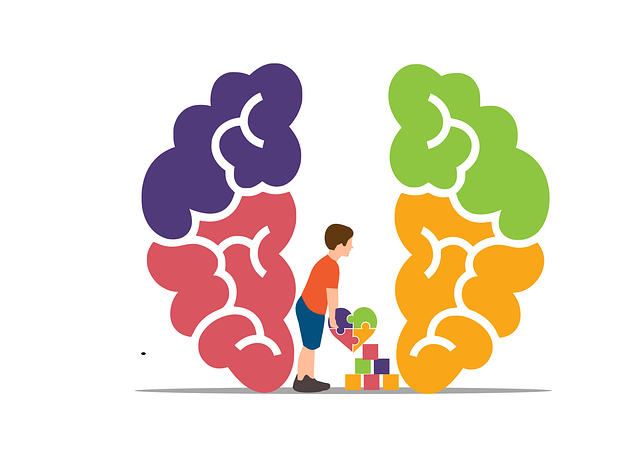Westminster Gender-Affirming Care Therapy (WGACT) offers a revolutionary, inclusive approach to mental health, prioritizing cultural sensitivity and focusing on emotion regulation. Through interactive exercises, self-reflection, and role-playing scenarios, individuals gain emotional awareness, learn to manage intense feelings, and cultivate compassion. This holistic method boosts interpersonal skills, self-esteem, and authentic expression, providing comprehensive care tailored to diverse clients' needs.
Emotion regulation techniques are essential tools for navigating life’s challenges, fostering resilience, and enhancing overall well-being. This article explores these skills in depth, offering a comprehensive guide for both individuals and practitioners. We begin by unraveling the basics of emotion regulation, then delve into the transformative Westminster Gender-Affirming Care Therapy. Practical techniques and real-world applications round out this insightful read, empowering you to teach and master emotion regulation effectively.
- Understanding Emotion Regulation: Unraveling the Basics
- Westminster Gender-Affirming Care Therapy: A Transformative Approach
- Practical Techniques for Teaching and Mastering Emotion Regulation
Understanding Emotion Regulation: Unraveling the Basics

Emotion regulation is a vital skill that empowers individuals to navigate life’s challenges with resilience and adaptability. It involves understanding, managing, and responding appropriately to one’s emotions, ensuring they serve as useful guides rather than overwhelming forces. By developing effective emotion regulation techniques, people can enhance their overall well-being and foster healthier relationships. This process begins with recognizing and acknowledging one’s emotional experiences, a step that fosters self-awareness—a cornerstone of mental health awareness.
Westminster Gender-Affirming Care Therapy offers valuable insights into unraveling these basics, especially for individuals seeking to integrate self-care routine development for better mental health. Through tailored therapeutic approaches, clients can learn to identify emotional triggers, manage intense feelings, and replace unhealthy coping mechanisms with adaptive strategies. This holistic approach not only enhances emotional intelligence but also complements social skills training, enabling individuals to engage in meaningful interactions while maintaining emotional balance.
Westminster Gender-Affirming Care Therapy: A Transformative Approach

The Westminster Gender-Affirming Care Therapy (WGACT) represents a groundbreaking and transformative approach to mental healthcare, particularly for individuals navigating their gender identity. This therapeutic framework is designed with cultural sensitivity in mental healthcare practice at its core, ensuring a safe and inclusive environment for all clients. By affirming and validating personal experiences, WGACT challenges traditional norms and promotes emotional well-being through a lens of acceptance and understanding.
One of the key strengths of this approach lies in its ability to integrate social skills training into the therapeutic process. This component equips individuals with the necessary tools to navigate interpersonal interactions, fostering better relationships and enhancing overall emotional resilience. Through these techniques, clients are empowered to express themselves authentically, leading to improved self-esteem and a more positive sense of self. By combining WGACT with emotional well-being promotion techniques, mental health practitioners can offer comprehensive care that addresses the unique needs of their diverse clientele.
Practical Techniques for Teaching and Mastering Emotion Regulation

Teaching emotion regulation skills is an essential part of holistic mental health care, and the Westminster Gender-Affirming Care Therapy approach offers valuable insights in this domain. One practical technique involves guiding individuals to identify and label their emotions accurately. This process, often facilitated through interactive exercises or discussion, helps clients develop emotional awareness—a cornerstone of effective regulation. By encouraging self-reflection, therapists can assist people in understanding the physical and mental cues associated with different feelings, enabling them to make informed choices about how to respond.
Additionally, incorporating strategies from the Mental Wellness Podcast Series Production can enhance learning. Role-playing scenarios, for instance, allow individuals to practice emotion regulation in safe, controlled environments. These exercises not only improve emotional intelligence but also foster resilience against burnout prevention. Compassion cultivation practices have also proven effective, teaching individuals to respond with kindness and understanding, which is particularly beneficial in managing challenging emotions.
Emotion regulation techniques, such as those offered through the innovative Westminster Gender-Affirming Care Therapy, play a pivotal role in enhancing well-being and mental resilience. By mastering these skills, individuals can navigate life’s challenges with greater ease and foster healthier relationships. Practical application of these techniques, as outlined in this article, provides a solid foundation for personal growth and improved emotional intelligence.












